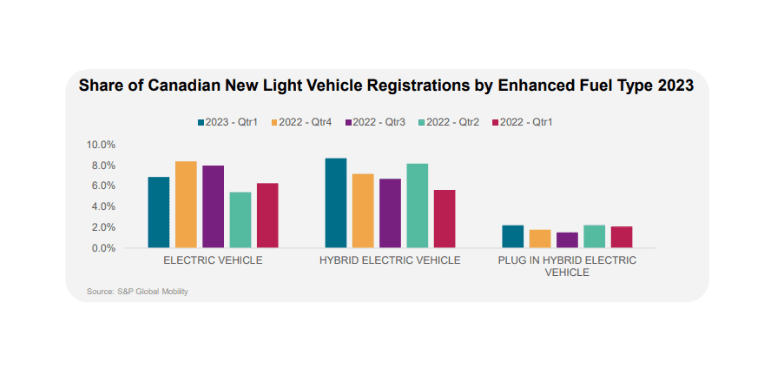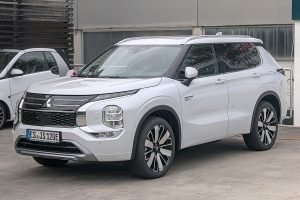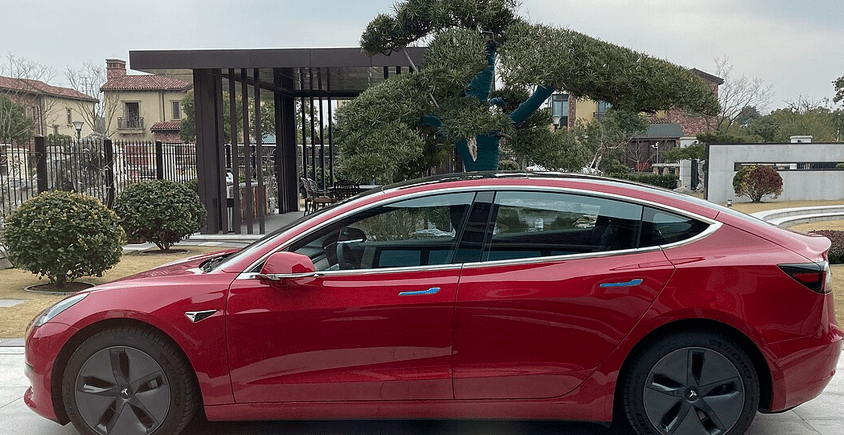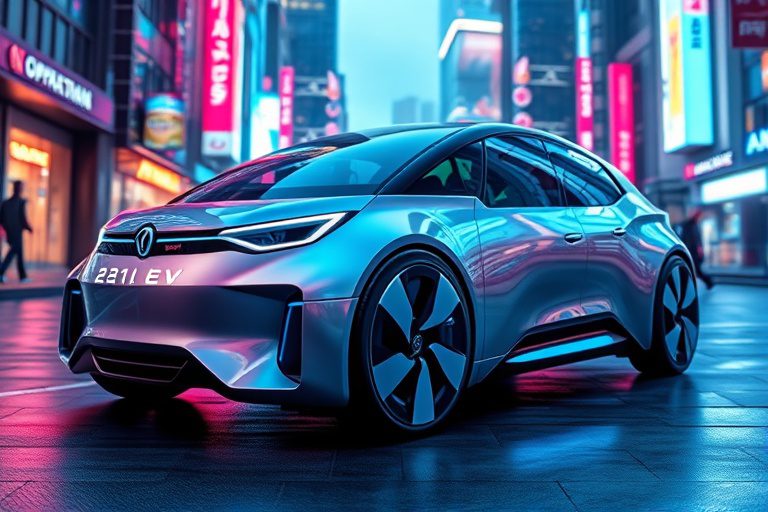Ottawa, Ontario — Canadian registrations for zero-emissions vehicles were down an entire percentage point in Q1 2023, following a record high in Q4 2022.
New data published by S&P Global Mobility says the market share for electric vehicles and plug-in hybrid vehicles in Q1 2023 was 9.1 percent, down from 10.2 percent in Q4 2022.
Battery-electric vehicles made up just under seven percent of new vehicle registrations nationwide, down from 8.4 percent in Q4 2022. Plug-in hybrid vehicle registrations were up 0.4 percent, however.
The nationwide drop in adoption is largely “due to a decrease in volume in Ontario and Quebec.” Ontario’s market share of EVs stands at 6.2 percent, says the report, well below the national average.
Further, Tesla registrations were down. Historically accounting for up to half of total EV registrations per quarter, Tesla registrations dropped 30 percent from Q4 2022. Thirty percent of EVs registered in Q1 2023 were Teslas, marking the OEM’s lowest quarterly share since Q1 2021.
British Columbia remains at the forefront of EV adoption in Canada, with EVs at a 19.7 percent market share of new light vehicles registered in the quarter, representing 25.9 percent of all EV registrations in Canada. Battery-electric vehicles account for 15.9 percent of all new registrations in B.C. for Q1 2023.
The Maritimes deserve a shout-out too, with Nova Scotia’s EV market share increasing by 3.2 percentage points over Q1 2022, and P.E.I.’s market share increasing by 1.9 percentage points in the same period.
The report says that, while Q4 2022 was a significant milestone for EVs in Canada, the decline in Q1 2023 suggests potential challenges ahead, citing inflationary measures that “may pose obstacles to the widespread adoption of ZEVs when price is a factor for the consumer.”




























